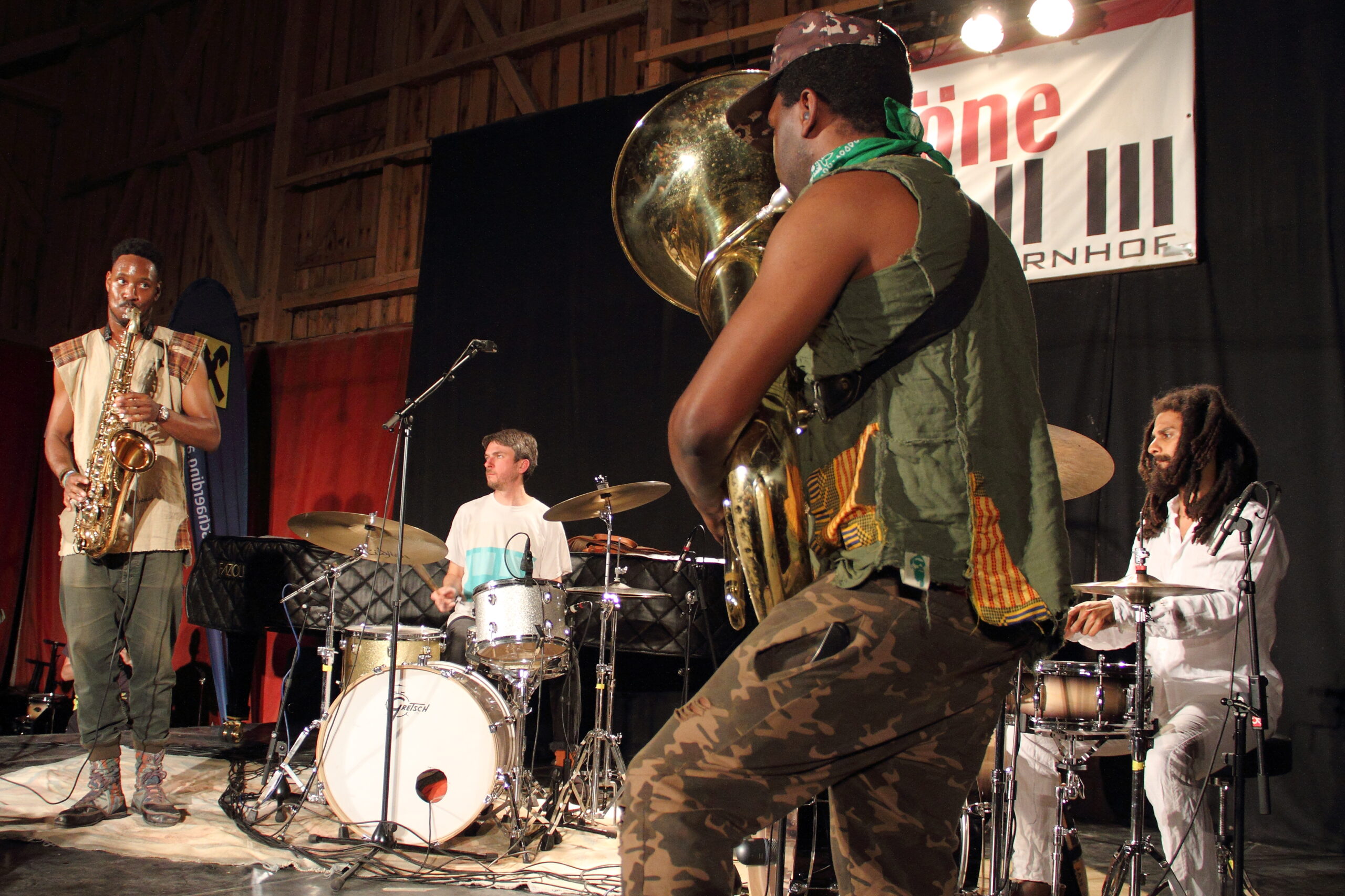Sons Of Kemet deliver with electrifying sold out show at Belgrave

Should I be allowed to throw up gun fingers at a jazz gig? After a summer of raving, and successive weekends in Leeds’ hotbed of clubs, this is a gesture I had to compulsively refrain myself from performing in the crowd of Sons of Kemet last week. For any other jazz-focused band, such horseplay would be deeply frowned upon, and rightly so, but the Shabaka Hutchings lead quartet are far from your conventional jazz outfit.
In sound system culture, seeing gun fingers fly through the air is one of the highest forms of camaraderie that can be felt between performer and audience. It’s since been popularised by jungle, grime and just about any other genre influenced by reggae. This is why it feels like such a natural gesture at a Sons of Kemet gig. Their recent album, Black to the Future, tinges cosmic jazz with inflections of soca, dub and the intrinsically grimey vocals of D Double E. Explorations into equally otherworldly sounds manifested a deeply percussive and innately groovy record that has been heralded by even the most astute of music critics.
Like with most cases of post-covid concerts, much anticipation surrounded this tour. Their date at Belgrave Music Hall was completely sold out, and a propulsion to dance could be felt among the 300 fans who watched on that evening.
Supporting the band was Leeds-based Algernon Cornelius, who’s trailblazing rap productions take sonic influence from the likes of Jockstrap, JPEGMafia and Injury Reserve. He was a wonderfully unconventional warm up, providing a punkish energy to the night that fits with much of the dialogue in Sons of Kemet’s music.
An expectant crowd then waited for the emergence of four more silhouettes. There was barely time for a swift Red Stripe before percussionists Edward Wakili-Hick and Tom Skinner were navigating past wires to sit at their drum kits and await the entrance of their horn players: Theon Cross (tuba) and Shabaka Hutchings (Saxophone and Clarinet). Once their positions were assumed, and that first puff into the mouthpiece was performed, the night ceased to disappoint.
Performing cuts across their discography, with a particular focus on the two most recent albums, the quartet barely stopped. Hutchings stared down the body of his saxophone like the audience stared in the bottom of their cups, quenching a simultaneous thirst for lager and jazz music. He would occasionally turn to look over at Cross, marching on the spot triumphantly in-time with the drums and acknowledging the tuba-maverick’s ethereal musicianship.
The triplet of ‘Think Of Home’, ‘Hustle’ and ‘For The Culture’, taken from Black To The Future, was certainly a moment; transporting the audience effortlessly to a place of spirituality. The latter two tracks feature Kojey Radical and D Double E, who’s vocals could have been missed in a live setting. However, Shabaka’s saxophone competently took on the role of any vocalist that evening, charming the crowd with various fluctuations of intonation played through the instrument.
As the quartet beavered their way through a blistering set of afrocentric-jazz, it became increasingly clear that no scale of pandemic can deteriorate people’s appetite for live music. The mix of students, young professionals and middle aged were equally encapsulated by the polyrhythms that darted across Belgrave’s walls that evening. When the set finished, Hutchings encouraged the audience to transfer the gig’s positive vibrations to those around us. In light of recent world events, it would seem everyone needs some of the optimism and togetherness birthed by the performances of Sons of Kemet.
